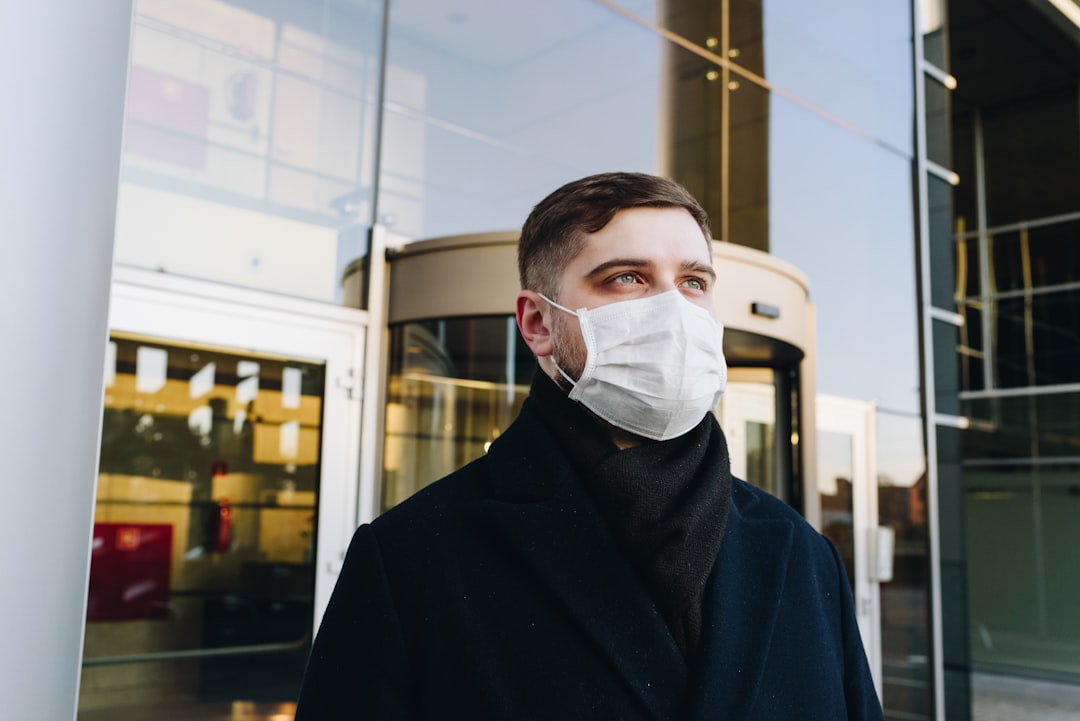Bentonite clay and apple cider vinegar are two natural ingredients that have been used for centuries for their health and beauty benefits. Bentonite clay, also known as Montmorillonite clay, is a natural clay that is formed from volcanic ash and is known for its ability to absorb and remove toxins from the body. It is rich in minerals such as calcium, magnesium, and iron, which are beneficial for the skin. Apple cider vinegar, on the other hand, is made from fermented apples and is known for its antibacterial and antifungal properties. It also contains alpha hydroxy acids that help to exfoliate the skin and unclog pores.
When combined, bentonite clay and apple cider vinegar create a powerful mask that can help to deep cleanse the pores, remove impurities, and improve the overall appearance of the skin. This DIY mask is a popular natural remedy for acne, blackheads, and oily skin, and is a great alternative to commercial skincare products that may contain harsh chemicals. By using these natural ingredients, you can achieve a deep cleanse that will leave your skin feeling refreshed and rejuvenated.
Summary
- Bentonite clay and apple cider vinegar are natural ingredients that can be used to create a deep cleansing mask for the skin.
- Deep cleansing your pores can help to remove impurities, reduce the appearance of pores, and improve overall skin health.
- Making a DIY bentonite clay and apple cider vinegar mask is simple and only requires a few ingredients.
- When applying the mask, it’s important to leave it on for the recommended time and to remove it gently to avoid irritating the skin.
- Precautions for using the mask include patch testing, avoiding sensitive areas, and moisturising after use. Other uses for these ingredients include hair care and detoxifying baths.
Benefits of Deep Cleansing Your Pores
Deep cleansing your pores is an essential part of any skincare routine, as it helps to remove dirt, oil, and impurities that can clog the pores and lead to acne and other skin issues. When the pores are clogged, it can also make the skin appear dull and uneven in texture. By using a bentonite clay and apple cider vinegar mask, you can effectively draw out impurities from the pores, leaving your skin looking clearer and more radiant.
In addition to improving the appearance of the skin, deep cleansing the pores can also help to reduce the occurrence of acne breakouts. When the pores are clean and free from blockages, it reduces the likelihood of bacteria becoming trapped and causing inflammation. This can lead to a reduction in the number of pimples and blackheads, as well as a decrease in overall oiliness. Deep cleansing the pores can also help to improve the effectiveness of other skincare products, as they can penetrate the skin more easily when the pores are clear.
How to Make a DIY Bentonite Clay and Apple Cider Vinegar Mask
Making a DIY bentonite clay and apple cider vinegar mask is simple and only requires a few ingredients. To make the mask, you will need bentonite clay, apple cider vinegar, and water. Start by mixing one tablespoon of bentonite clay with one tablespoon of apple cider vinegar in a non-metal bowl. The apple cider vinegar will react with the bentonite clay to create a fizzing effect, so be sure to mix it well until it forms a smooth paste. If the mixture is too thick, you can add a small amount of water to thin it out.
Once the mask is mixed to your desired consistency, apply it to clean skin using your fingertips or a brush. Be sure to avoid the delicate eye area and any open wounds or cuts. Leave the mask on for 10-15 minutes, or until it begins to dry and tighten on the skin. As the mask dries, you may feel a tingling or pulsating sensation, which is normal and indicates that the mask is working to draw out impurities from the pores. After the allotted time, rinse the mask off with warm water and pat your skin dry with a clean towel.
Application and Removal of the Mask
When applying the bentonite clay and apple cider vinegar mask, it’s important to start with clean skin to ensure that the mask can effectively penetrate the pores. Use a gentle cleanser to remove any makeup, dirt, or oil from the skin before applying the mask. Once your skin is clean, use your fingertips or a brush to apply an even layer of the mask to your face, avoiding the eye area. Allow the mask to dry for 10-15 minutes, or until it begins to feel tight on the skin.
When it comes time to remove the mask, rinse your face with warm water to help soften the dried clay. Gently massage your skin as you rinse to help loosen the mask from your pores. Once the mask has been completely removed, pat your skin dry with a clean towel. It’s important to follow up with a moisturiser after using a clay mask, as they can be drying to the skin. Choose a lightweight moisturiser that won’t clog your pores and apply it generously to keep your skin hydrated.
Precautions and Tips for Using the Mask
While bentonite clay and apple cider vinegar masks are generally safe for most skin types, there are a few precautions and tips to keep in mind when using them. It’s important to do a patch test before using any new skincare product or ingredient, especially if you have sensitive skin. Apply a small amount of the mask to a discreet area of your skin, such as behind your ear or on your inner arm, and wait 24 hours to see if any irritation occurs.
When using the mask on your face, be sure to avoid getting it in your eyes or mouth, as it can be irritating to these sensitive areas. If you have any open wounds or cuts on your face, it’s best to avoid using a clay mask until they have healed, as it can be drying and may cause discomfort. Additionally, be mindful of how often you use a clay mask, as using it too frequently can lead to over-drying of the skin. Aim to use the mask once or twice a week for best results.
Other Uses for Bentonite Clay and Apple Cider Vinegar
In addition to using bentonite clay and apple cider vinegar for skincare, these natural ingredients have a variety of other uses that can benefit your health and wellbeing. Bentonite clay can be used as a detoxifying bath soak by adding a few tablespoons to your bathwater to help draw out toxins from the body. It can also be used as a natural deodorant by mixing it with water and applying it to your underarms.
Apple cider vinegar has many uses beyond skincare as well. It can be used as a natural household cleaner by mixing it with water in a spray bottle to clean surfaces such as countertops and windows. It can also be used as a hair rinse by diluting it with water and pouring it over your hair after shampooing to help remove product buildup and restore shine.
Conclusion and Final Thoughts on Deep Cleansing Your Pores
Deep cleansing your pores with a bentonite clay and apple cider vinegar mask is an effective way to improve the overall health and appearance of your skin. By drawing out impurities from the pores, this DIY mask can help to reduce acne breakouts, blackheads, and excess oiliness while leaving your skin looking clearer and more radiant. When using this mask, be sure to follow precautions such as doing a patch test and avoiding sensitive areas such as the eyes and mouth.
In addition to using this mask for skincare, both bentonite clay and apple cider vinegar have numerous other uses that can benefit your health and home. From detoxifying baths to natural household cleaners, these versatile ingredients are worth keeping on hand for their many uses. Overall, deep cleansing your pores with natural ingredients is a great way to care for your skin without harsh chemicals or irritants, leaving you with a healthy glow inside and out.
Discovering your skin type is crucial for tailoring your skincare routine to your specific needs. Understanding Your Skin Type: A Guide to Personalized Skincare provides valuable insights into identifying and caring for different skin types. In addition to using the right products, it’s important to debunk common skincare myths that could be affecting your routine. 5 Skincare Myths Debunked: Separating Fact from Fiction offers a comprehensive look at misconceptions that may be hindering your skincare efforts. Furthermore, the role of niacinamide in skincare is explored in detail in The Role of Niacinamide in Skincare, shedding light on the benefits of this powerful ingredient. Embracing a holistic approach to skincare can lead to healthier, clearer skin. Understanding Your Skin Type: A Guide to Personalized Skincare
FAQs
What is Bentonite clay?
Bentonite clay is a natural clay that is formed from volcanic ash and is known for its ability to absorb and remove toxins from the body. It is commonly used in skincare products for its deep cleansing and purifying properties.
What is apple cider vinegar?
Apple cider vinegar is a type of vinegar made from fermented apple juice. It is known for its antibacterial and antiseptic properties, and is often used in skincare products to help balance the skin’s pH levels and reduce acne.
How does a Bentonite clay and apple cider vinegar mask work?
When Bentonite clay is mixed with apple cider vinegar, it creates a powerful mask that helps to draw out impurities from the skin, unclog pores, and exfoliate dead skin cells. The combination of these two ingredients can help to deep cleanse the pores and improve the overall appearance of the skin.
How do you make a Bentonite clay and apple cider vinegar mask?
To make a Bentonite clay and apple cider vinegar mask, mix equal parts of Bentonite clay and apple cider vinegar in a non-metal bowl to form a smooth paste. Apply the mask to clean, dry skin and leave it on for 10-15 minutes before rinsing off with warm water.
Is a Bentonite clay and apple cider vinegar mask suitable for all skin types?
While Bentonite clay and apple cider vinegar masks can be beneficial for many skin types, it is important to patch test the mask on a small area of skin before applying it to the entire face, especially for those with sensitive skin. It is also recommended to consult with a dermatologist before using this mask if you have any skin concerns or conditions.




